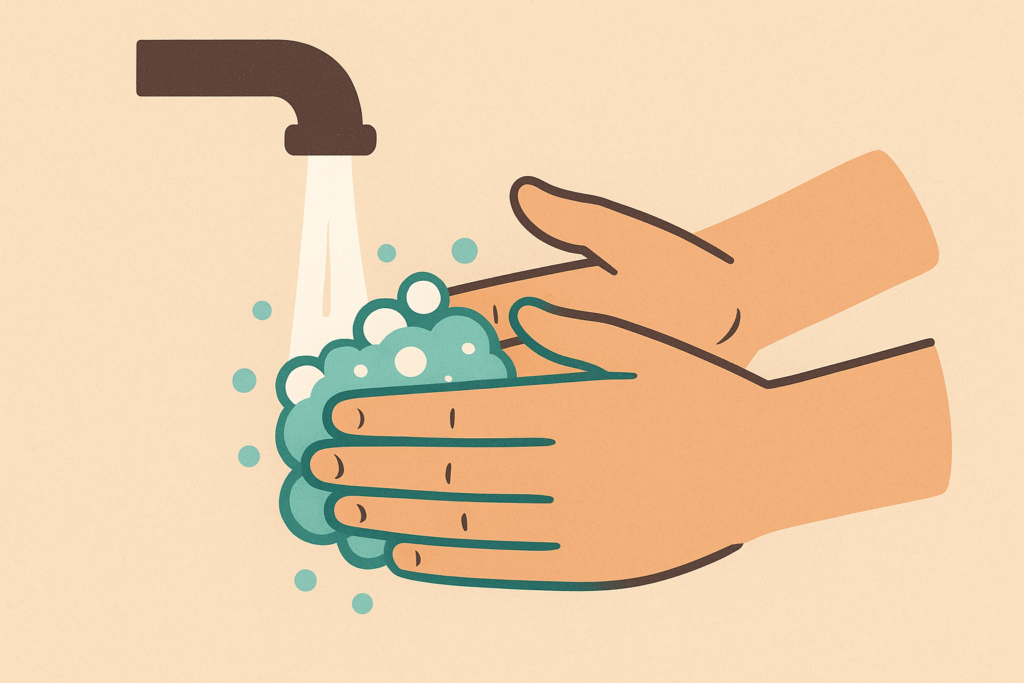Introduction: Winning Without the Stains
In business, politics, and even personal relationships, power is often built on perception. People respect those who appear principled, consistent, and above the fray. But here’s the truth — every success story has its share of difficult choices, risky moves, and potentially unpopular decisions. The key is this: if you want influence and longevity, your reputation must remain spotless, even if your actions behind the scenes are anything but simple.

The art of staying “clean” isn’t about never engaging in conflict or controversy — it’s about ensuring that any blame, backlash, or fallout doesn’t stick to you.
Why Reputation is Your Greatest Asset
Once tarnished, reputations are incredibly hard to restore. In our hyper-connected world, news spreads in seconds, and public judgment is often instant. Whether you are a CEO, politician, entrepreneur, or creative professional, your image is a currency that can make or break opportunities.
If people believe you are always fair, ethical, and free from scandal, they are more likely to trust, follow, and support you — even if they don’t know the full extent of your behind-the-scenes involvement.
The Principle in Action
The strategy is simple: let others take the blame for unpopular decisions, while you stay publicly associated with the positive outcomes. Surround yourself with capable intermediaries who can handle the messy parts, allowing you to maintain an image of integrity.
This does not mean being manipulative or exploitative — it means building layers of protection between your personal brand and potential damage.
Cardinal Richelieu’s Political Mastery

In 17th-century France, Cardinal Richelieu rose to power as the chief minister to King Louis XIII. His policies were bold, sometimes ruthless — centralizing power, suppressing noble uprisings, and expanding French influence abroad. Many of these moves were deeply unpopular among certain factions.
Yet Richelieu remained untouchable in the public eye. How?
- Delegating Dirty Work – Richelieu often had loyal agents carry out controversial orders. If something backfired, the blame landed on the subordinate, not him.
- Positioning as the Protector – In official speeches and writings, Richelieu framed himself as acting in the King’s and France’s best interest, even when the measures were harsh.
- Controlling the Narrative – By shaping public communication, he ensured his image was of a noble servant, not a scheming politician.
Through this skill, Richelieu maintained power for nearly two decades in one of Europe’s most turbulent courts — proof that staying untarnished can mean the difference between a short-lived rise and enduring influence.
Modern-Day Example: Corporate Crisis Management
Today, this principle plays out in boardrooms and corporate PR strategies. Consider large companies facing product recalls or public backlash. The CEO often remains calm and reassuring in front of the press, while behind the scenes, legal teams, crisis managers, and middle executives handle the tough conversations and blame management.
The result? The leader retains their credibility while the company navigates the mess.
Why This Strategy Works
- Perception Shapes Reality – People believe what they see and hear most often. If you are consistently associated with fairness and success, negative incidents rarely stick.
- Separation Protects Power – A visible distance between you and controversial actions makes it easier to deflect criticism.
- Trust Grows with Consistency – When you appear steady and composed under pressure, people see you as dependable.
Practical Ways to Keep Your Hands Clean
- Use Trusted Intermediaries – Have others deliver bad news, enforce unpopular rules, or execute controversial moves.
- Control Your Public Image – Speak directly to your values and vision. Avoid public association with divisive actions.
- Limit Overexposure – The more access people have to your daily decision-making, the more likely they are to find fault.
- Separate Personal and Professional Brands – Keep your private life private; avoid giving critics unnecessary ammunition.
The Psychological Advantage
When people see you as “above reproach,” they instinctively defend you against criticism. This phenomenon, known as the halo effect, means your past positive image can shield you even when the truth is more complicated.
The Fine Line: Clean Hands vs. Dishonesty
There is a difference between strategic image management and outright deceit. Strategic leaders make hard decisions but ensure they don’t become the face of controversy. Unethical actors, on the other hand, deliberately hide wrongdoing while profiting from harm.
To maintain both power and self-respect, always operate within legal and moral boundaries, even when shielding yourself from the fallout.
Signs You are Risking Your Clean Image
- You are directly associated with a controversial or unpopular move.
- Your name appears alongside negative headlines.
- You find yourself constantly explaining or defending actions in public.
If these occur, it’s time to distance your image from operational controversies and rebuild trust.
Turning This into a Habit
- Plan for Public Perception Before You Act – Ask, “How will this decision be seen if it fails?”
- Build a Buffer of Loyal Allies – Surround yourself with trusted people who can act as shields when necessary.
- Stay Visible Only for the Wins – Align your public presence with moments of success, not operational struggles.
Conclusion: Influence Without the Stains
In a world where one wrong move can undo years of hard work, keeping your hands clean is not just smart — it is essential. By carefully separating yourself from controversy, delegating risky moves, and protecting your reputation, you ensure that your influence remains intact.
Those who master this principle often find they can navigate the most treacherous environments without losing the respect and trust that make power sustainable.
